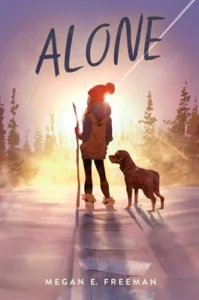 Welcome back to my (Mostly) Weekly Reads feature!
Welcome back to my (Mostly) Weekly Reads feature! I took last week off in light of the tragedy in Uvalde, Texas. I don’t know about you, but I didn’t have the bandwidth or, frankly, the will to write a bookish blog post last week. I became, like so many people, consumed by news media, especially by the portraits of those who were lost, yet again, to gun violence. I couldn’t find words to articulate my deep dismay, and still struggle to.
But I will share a couple of things I have done in the past week before we dive in to the weekly read, in the hopes that others may feel motivated to do a couple of things too:
I joined Moms Demand Action and donated to Everytown. Moms Demand Action has an app you can put on your phone, and they make it very easy to do some actionable steps, like contacting senators or signing petitions.
I donated copies of TROUBLE AT TURTLE POND to 600 BOOKS OF HOPE: COMPASSION THROUGH STORY. This initiative seeks to collect at least 600 new children’s books with hopeful messages to ensure that every child at Robb Elementary School would receive one new book, “one tangible thing they can take with them that might shine a ray of promise in their unbearable darkness,” according to organizer e.E. Carlton-Trujillo. The goal is also to collect 1,300 more books to gift to the town’s other schools, from K-12. You can read more about the initiative here, and if you are a children’s book author, illustrator, editor, or publisher, please consider signing up to donate new books!
And finally, as I work on my new mystery novel (which also took about a weeklong hiatus while I processed the news), I revisited an essay I wrote for the Huffington Post back in 2014: “Unarmed and Dangerous: On Writing a Thriller With No Guns.” Sadly, this essay often gets dug up and circulated on the Internet after school shootings. But if you’re writing a book for young readers and contemplating whether or how much to include guns, this might be worth reading and thinking about. It describes my attempt to avoid guns in my second YA novel, which was harder than it sounds.
And so, on to this week’s Weekly Read, which is, fittingly in many ways, a survival narrative. I’m almost done listening to Megan Freeman’s marvelous middle grade novel in verse, ALONE. The premise immediately grabbed me, as I can well remember the feeling of being a child or even a young adult, and finding that a morning seems particularly quiet, the streets emptier, even the birds subdued, and wondering: Where is everyone? Did they evacuate and forget to tell me??
That’s pretty much what happens in ALONE! Maddie, age 12, is scheming to have a secret sleepover with friends, capitalizing on the shuttling she does back and forth between divorced parents and the occasional times when logistics slip through the cracks. But plans change, she sleeps at her grandmother’s empty house on her own, and wakes up to find herself completely alone; her town has been evacuated and abandoned overnight, for no clear reason. Is the thread environmental? Invisible? Potentially under attack from an enemy? The messaging about “relocation” and transport, with the tone of vague threats, was eerily relatable. Maddie must learn to survive on her own in a town that seems to have every creature comfort, but in fact has no infrastructure — no cell phones, no electricity — and the isolation she feels is one of the hardest challenges to overcome. Fortunately a dog named George and a library full of books provide companionship.
This book is Home Alone on steroids. Maddie’s plight is a scary prospect to contemplate, but also a powerful reminder of how resourceful we can be, and how impactful the written word can be, as Maddie turns to all kinds of reading material for insight, instruction, and inspiration.
I’d love to know what you’re reading, and how words sustain you through difficult times; feel free to drop a note in the comments!